For being a netbook-fan I admit I am in the market for a super-slim lightweight laptop. The market has evolved, the current slimbooks are only slightly more expensive than netbooks, and I find the 13.3” screen size an ideal compromise between portability and straining my eyes with the tiny screens. So I was quite happy to see what I consider a good deal: a HP DM3 for $449 @ Office Depot.
I found it on DealNews a few days ago, but it became impossible to purchase almost immediately. I tried it for a few days, most recently just minutes ago, but am always getting the same response: no inventory.
The other SKU is available though, for $150 more. It appears the be the same configuration, without the discount. I tried to tweet up @OfficeDepot, but I guess they are busy handing out cookies. Finally I had an online chat with Customer Service, which basically conformed my suspicion: the SKU that’s available is the same physical unit, just without the discount. So here’s the beef (not cookie):
- Office Depot is advertising a computer at $449
- The price is listed as effective through Jan 30th, without mentioning any restriction on how many they are selling at this price
- They do have available inventory
- They refuse to sell it at the listed price
If this is not false advertising, I don’t know what is.
Finally, see the script of my Customer Service chat:
Office Depot Online Help
Chat Dialog
CSR Gary has entered the session.
Zoli: looking at item# 328626 – says no inventory. The same config available for $150 more under different SKU. But this one says price valid till Jan 30 – so how can I buy it?
CSR Gary: Thank you for contacting Office Depot , Please give me a moment, while I check that for you.
Zoli: thanks
CSR Gary: You are welcome
CSR Gary: Thank you for being on hold
CSR Gary: I am sorry item “328626” is no longer available for purchase
Zoli: Isn’t 808119 the same?
CSR Gary: yes it is the same
CSR Gary: may i have your zip code
Zoli: 94566
CSR Gary: item 808119 is available for purchase
CSR Gary: please do call our customer care
department @ 1-800-463-3768 and they will help you in
placing this order
Zoli: I see the availability online. but it is the identical product for $150 more then the other price, which claims to be valid till 1/30
CSR Gary: Yes
CSR Gary: We sincerely apologize for any inconvenience caused.
CSR Gary: Is there anything else I may assist you with?
Zoli: It’s not a matter of inconvenience. If your website claims it is avail for $449, and you do have inventory, then you should be sellign it for that price, not $599
Zoli: Otherwise this feels like deceptive advertising
CSR Gary: I am sorry the item is available until stocks last
CSR Gary: I will escalate this issue to the concerned department to remove the out of stock item from the website
Zoli: OK. Thanks.
Zoli: I’m blogging this as a case of deceptive advertising
Update – I guess I should not be surprised: Office Depot Associates Routinely Lie about Notebook Stock – reported Laptop Magazine almost a year ago.
Update #2: Did Office Depot really need this:
(Cross-posted @ CloudAve )

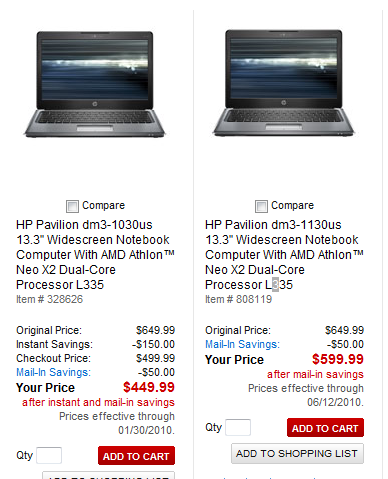
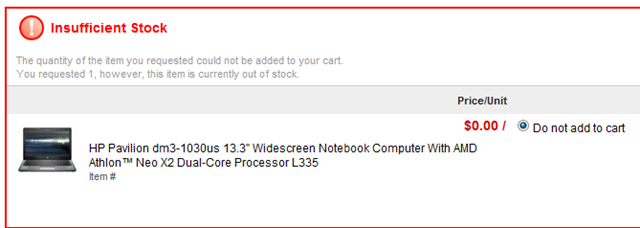
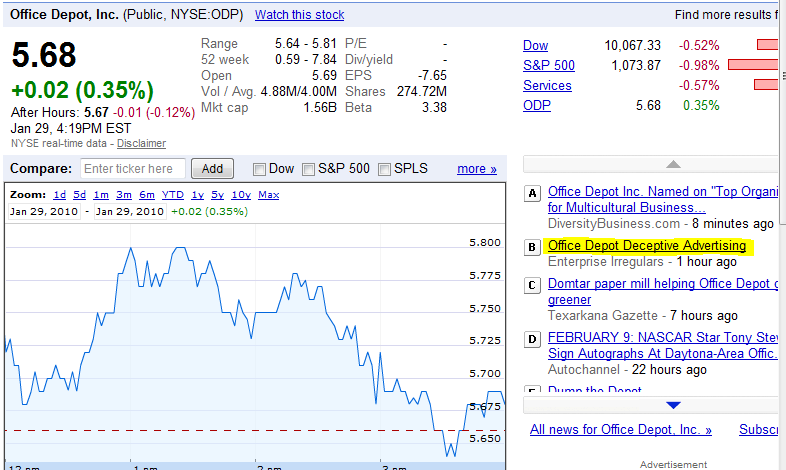
 I’ve previously covered Netbooks, provider of an
I’ve previously covered Netbooks, provider of an 
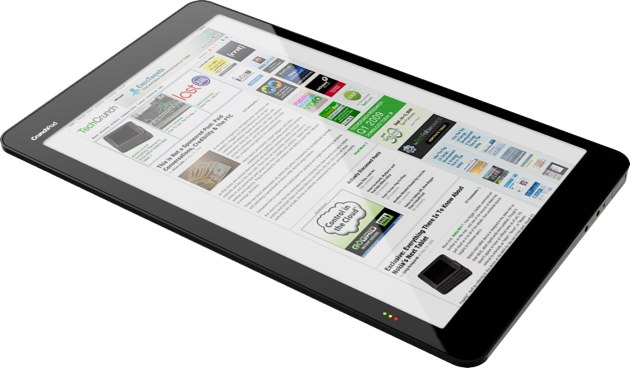

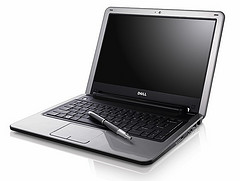 The proliferation of affordable netbooks is good for everyone – consumers, that is. Computer manufacturers loath it (high volume, low margin business) and so does Microsoft: they can’t exactly sell $100+ worth of software on a $200 machine. So they come up with all sorts of
The proliferation of affordable netbooks is good for everyone – consumers, that is. Computer manufacturers loath it (high volume, low margin business) and so does Microsoft: they can’t exactly sell $100+ worth of software on a $200 machine. So they come up with all sorts of 
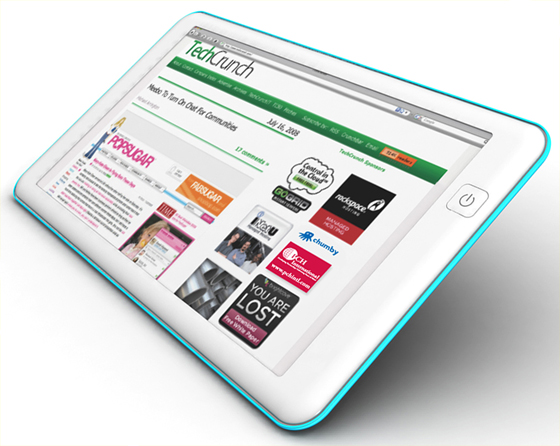 I admit
I admit 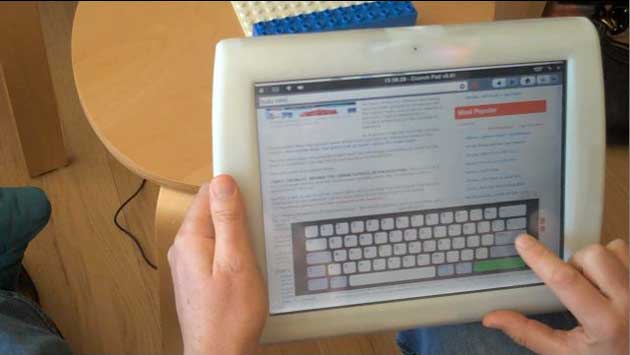
 The New York Times ran an article this week:
The New York Times ran an article this week:  Finally, a word on connectivity and prices: Wifi gets you online almost, but not all the time, so obviously a 3G connection is a useful addition to your netbook. But you will pay for 3G data usage, so why don’t carriers subsidize your netbook purchase, like they do with cell phones? The day will come, as the WSJ reports, HP may be one of the first to introduce such a model:
Finally, a word on connectivity and prices: Wifi gets you online almost, but not all the time, so obviously a 3G connection is a useful addition to your netbook. But you will pay for 3G data usage, so why don’t carriers subsidize your netbook purchase, like they do with cell phones? The day will come, as the WSJ reports, HP may be one of the first to introduce such a model:  PDC has shown that Microsoft is now eager to forget about Vista, a bad dream, fully focusing on Windows 7. They must have realized that no multi-million-dollar marketing campaign can fix Vista’s badly tarnished reputation.
PDC has shown that Microsoft is now eager to forget about Vista, a bad dream, fully focusing on Windows 7. They must have realized that no multi-million-dollar marketing campaign can fix Vista’s badly tarnished reputation.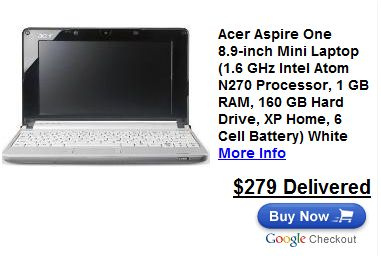 I know netbook prices are dropping, but not this fast! Just a day after hearing about a
I know netbook prices are dropping, but not this fast! Just a day after hearing about a 

Recent Comments